tert-Butyl (1-(hydroxymethyl)cyclopropyl)carbamate
- CAS NO.:107017-73-2
- Empirical Formula: C9H17NO3
- Molecular Weight: 187.24
- MDL number: MFCD09749954
- SAFETY DATA SHEET (SDS)
- Update Date: 2025-07-24 18:13:40

What is tert-Butyl (1-(hydroxymethyl)cyclopropyl)carbamate?
The Uses of tert-Butyl (1-(hydroxymethyl)cyclopropyl)carbamate
Tert-Butyl (1-(hydroxymethyl)cyclopropyl)carbamate could be converted into spirocyclopropanated analogues 14-CP and 14-CT of the insecticide Thiacloprid [1]. It can also be transformed into spirocyclopropanated analogs of Imidacloprid. This compound could be used to synthesize spirocyclopropanated five-membered ring analog 4-(3,5-Dichlorophenyl)-N-isopropyl-5-oxo-4,6-diazaspiro- [2.4]heptane-6-carboxamide[2].
Preparation
Tert-Butyl (1-(hydroxymethyl)cyclopropyl)carbamate can be synthesized in three steps (40 % overall yield) from N, Ndibenzyl-2-benzyloxyacetamide starting with its reductive cyclopropanation (the de Meijere variant of the so-called Kulinkovich reaction). It can also be prepared in 56 % overall yield by monohydrolysis of commercially available diethyl cyclopropane-1,1-dicarboxylate followed by Curtius degradation of the carboxylic acid residue and subsequent reduction of the ester moiety[1].
References
[1] Brackmann F, et al. Synthesis of Spirocyclopropanated Analogues of Imidacloprid and Thiacloprid. European Journal of Organic Chemistry, 2005; 2005: 600-609.
[2] Brackmann F, et al. Synthesis of Spirocyclopropanated Analogues of Iprodione. European Journal of Organic Chemistry, 2005; 2005: 2250-2258.
Properties of tert-Butyl (1-(hydroxymethyl)cyclopropyl)carbamate
| Melting point: | 81.0 to 85.0 °C |
| Boiling point: | 294.5±9.0 °C(Predicted) |
| Density | 1.11±0.1 g/cm3(Predicted) |
| storage temp. | Keep in dark place,Sealed in dry,Room Temperature |
| form | powder to crystal |
| pka | 12.24±0.20(Predicted) |
| color | White to Orange to Green |
| InChI | InChI=1S/C9H17NO3/c1-8(2,3)13-7(12)10-9(6-11)4-5-9/h11H,4-6H2,1-3H3,(H,10,12) |
Safety information for tert-Butyl (1-(hydroxymethyl)cyclopropyl)carbamate
| Signal word | Warning |
| Pictogram(s) |
 Exclamation Mark Irritant GHS07 |
| GHS Hazard Statements |
H302:Acute toxicity,oral H315:Skin corrosion/irritation H319:Serious eye damage/eye irritation H332:Acute toxicity,inhalation H335:Specific target organ toxicity, single exposure;Respiratory tract irritation |
| Precautionary Statement Codes |
P280:Wear protective gloves/protective clothing/eye protection/face protection. P310:Immediately call a POISON CENTER or doctor/physician. P305+P351+P338:IF IN EYES: Rinse cautiously with water for several minutes. Remove contact lenses, if present and easy to do. Continuerinsing. |
Computed Descriptors for tert-Butyl (1-(hydroxymethyl)cyclopropyl)carbamate
| InChIKey | HFMAZNJKNNRONT-UHFFFAOYSA-N |
| SMILES | C(OC(C)(C)C)(=O)NC1(CO)CC1 |
New Products
4,4-Difluoropiperidine hydrochloride tert-butyl 9-methoxy-3-azaspiro[5.5]undecane-3-carboxylate Indole Methyl Resin N-Isopropylurea N,N-Dicyclohexylcarbodiimide(DCC) MELDRUMS ACID 5-METHYLISOXAZOLE-4-CARBOXYLIC ACID Magnessium Bis glycinate Zinc ascorbate 1-bromo-2-butyne 2-acetamidophenol 9(10H)-anthracenone Erythrosin B, 4-Piperidinopiperidine 2-((4-morpholinophenylamino) (methylthio) methylene) malononitrile 2,4-dihydroxybenzaldehyde 3-(4-morpholinophenylamino)-5-amino-1H-pyrazole-4-carbonitrile Methyl 2-methylquinoline-6-carboxylate 2,6-dichloro-4-nitropyridine 4-Bromo-2-chlorobenzonitrile 2-(benzylamino)acetic acid hydrochloride 4-(tert-Butoxycarbonylamino)but- 2-ynoic acid 3,4-dihydro-2H-benzo[b][1,4]dioxepine 1-Phenyl-1-cycloprppanecarboxylicacidRelated products of tetrahydrofuran

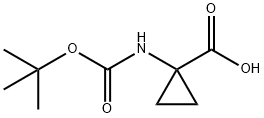
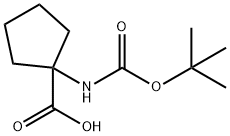
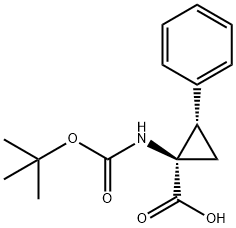
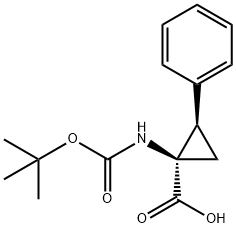
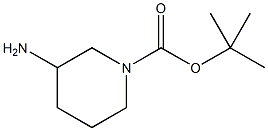
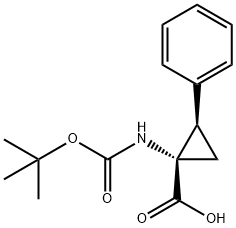
![1-[[(1,1-dimethylethoxy)carbonyl]amino]-2-ethenyl-,(1S,2R)-](https://img.chemicalbook.in/CAS/GIF/259214-55-6.gif)
You may like
-
 107017-73-2 1-(Boc-amino)cyclopropylmethanol 98%View Details
107017-73-2 1-(Boc-amino)cyclopropylmethanol 98%View Details
107017-73-2 -
 1-(Boc-amino)cyclopropylmethanol 98%View Details
1-(Boc-amino)cyclopropylmethanol 98%View Details
107017-73-2 -
![[1-(tert-Butoxycarbonylamino)cyclopropyl]methanol CAS 107017-73-2](https://img.chemicalbook.in//Content/image/CP5.jpg) [1-(tert-Butoxycarbonylamino)cyclopropyl]methanol CAS 107017-73-2View Details
[1-(tert-Butoxycarbonylamino)cyclopropyl]methanol CAS 107017-73-2View Details
107017-73-2 -
 tert-Butyl 1-(hydroxymethyl)cyclopropylcarbamate 97% CAS 107017-73-2View Details
tert-Butyl 1-(hydroxymethyl)cyclopropylcarbamate 97% CAS 107017-73-2View Details
107017-73-2 -
 3-(4-amino-1-oxoisoindolin-2-yl)-1-methylpiperidine-2,6-dione 98%View Details
3-(4-amino-1-oxoisoindolin-2-yl)-1-methylpiperidine-2,6-dione 98%View Details -
 20677-73-0 (2,2-diethoxyethyl)methylamine 98%View Details
20677-73-0 (2,2-diethoxyethyl)methylamine 98%View Details
20677-73-0 -
 3-(4-(hydroxyamino)-1-oxoisoindolin-2-yl)piperidine-2,6-dione 98%View Details
3-(4-(hydroxyamino)-1-oxoisoindolin-2-yl)piperidine-2,6-dione 98%View Details -
 57381-49-4 2-bromo-4-chlorobenzonitrile 98%View Details
57381-49-4 2-bromo-4-chlorobenzonitrile 98%View Details
57381-49-4
